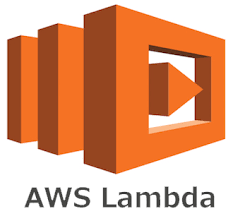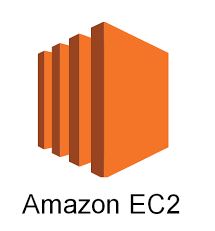One of the most powerful features of Amazon Web Services (AWS) is the ability to automate operational tasks. In this article, we’ll walk you through creating a system that spins up an AWS EC2 T2 instance at 10:00 PM EST every day, executes a Python script stored in an S3 bucket, and then terminates the instance by 10:30 PM EST. This will be accomplished using AWS Lambda functions and AWS CloudFormation, providing a powerful, automated, and time-controlled solution.
Prerequisites:
- An AWS account.
- Sufficient permissions to create and manage EC2 instances, S3 buckets, AWS Lambda functions, IAM roles, and CloudFormation stacks.
- Basic knowledge of Python, AWS services, and YAML (for CloudFormation).
Steps:
1. Creating an IAM Role for Lambda:
First, we need to create an IAM role that AWS Lambda will assume to perform operations. This role needs the following permissions:
- AmazonEC2FullAccess: To manage EC2 instances.
- AmazonS3ReadOnlyAccess: To read files from S3.
- AWSLambdaBasicExecutionRole: To write logs to CloudWatch.
These roles can be added through the AWS Management Console, under IAM service, Roles section.
2. Writing the Lambda Function:
The Lambda function will be responsible for starting the EC2 instance, triggering the script execution, and terminating the EC2 instance. The script would be as follows:
import boto3
def lambda_handler(event, context):
ec2 = boto3.resource('ec2')
# Replace with your instance ID
instance_id = 'your-ec2-instance-id'
instance = ec2.Instance(instance_id)
if event.get('action') == 'start':
# Start the instance
instance.start()
instance.wait_until_running()
# Execute the script
# Depending on how you setup your instance, you might need to SSH into the instance and execute your script manually
# Or, you can use User Data or Instance Metadata to automatically run the script upon instance startup
elif event.get('action') == 'stop':
# Terminate the instance
instance.terminate()
else:
print('Invalid event')3. CloudFormation Template:
We create two CloudWatch Events rules, one to trigger the function with a “start” event at 10:00 PM EST, and another with a “stop” event at 10:30 PM EST.
AWSTemplateFormatVersion: '2010-09-09'
Resources:
LambdaExecutionRole:
Type: 'AWS::IAM::Role'
Properties:
AssumeRolePolicyDocument:
Version: '2012-10-17'
Statement:
- Effect: Allow
Principal:
Service: 'lambda.amazonaws.com'
Action: 'sts:AssumeRole'
ManagedPolicyArns:
- 'arn:aws:iam::aws:policy/AmazonEC2FullAccess'
- 'arn:aws:iam::aws:policy/AmazonS3ReadOnlyAccess'
- 'arn:aws:iam::aws:policy/service-role/AWSLambdaBasicExecutionRole'
MyLambdaFunction:
Type: 'AWS::Lambda::Function'
Properties:
Code:
S3Bucket: 'freshers-in'
S3Key: 'code-bkt/viwershipt/daily-viewers-action.py'
Handler: 'daily-viewers-action.lambda_handler'
Role: !GetAtt LambdaExecutionRole.Arn
Runtime: 'python3.9'
StartSchedule:
Type: 'AWS::Events::Rule'
Properties:
Description: 'Start my EC2 instance at 10:00 PM EST daily'
ScheduleExpression: 'cron(00 22 * * ? *)'
Targets:
- Arn: !GetAtt MyLambdaFunction.Arn
Id: 'TargetFunctionV1'
Input: '{"action": "start"}'
StopSchedule:
Type: 'AWS::Events::Rule'
Properties:
Description: 'Stop my EC2 instance at 10:30 PM EST daily'
ScheduleExpression: 'cron(30 22 * * ? *)'
Targets:
- Arn: !GetAtt MyLambdaFunction.Arn
Id: 'TargetFunctionV2'
Input: '{"action": "stop"}'
4. Deploying the Stack:
Now you’re ready to deploy the stack. Navigate to the CloudFormation console and create a new stack. Select “Upload a template file”, upload your YAML file, and follow the wizard to deploy your stack.
That’s it! Now, your EC2 instance will start at 10:00 PM EST daily, execute the Python script, and terminate by 10:30 PM EST.
Refer more on python here : Python







